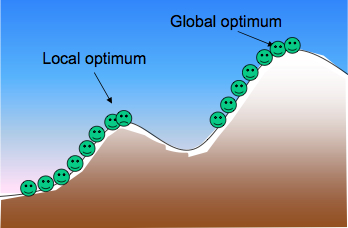Gli economisti hanno fama di tendere al ragionamento astratto più che alla concretezza dell’azione. C’è un po’ di verità in questo luogo comune, tanto che nei dipartimenti di economia fiorisce il sottogenere delle barzellette sugli economisti. Questa, per esempio:
Un economista, dopo un naufragio, si ritrova su un’isola deserta. Si guarda intorno e vede una cassa di legno depositata sulla spiaggia dalla marea. La apre: è piena di scatolette di cibo, nutriente e a lunghissima conservazione! Purtroppo non ha nessuno strumento per aprirle: è forse condannato a morire di fame seduto di fronte a tutto quel cibo? L’economista non si perde d’animo e affronta il problema così: “Ipotizziamo di avere un apriscatole…”
Molti di noi soffrono per la mancanza di concretezza associata talvolta alla nostra professione. Per questo sono così contento di andare a Potenza venerdì 4: perché tre anni e mezzo fa il Ministero dello sviluppo economico mi ha chiesto di assistere la Regione Basilicata nell’elaborazione di una politica di spazi laboratorio per la creatività. Io ho insistito per prendere la strada, lunga e accidentata, del coinvolgimento dei creativi lucani; e oggi, finalmente, il primo spazio (si chiama Cecilia) è pronto, e gli altri quattro sono in consegna. Non solo gli spazi sono stati coprogettati insieme ai creativi di quel territorio; non solo sono sorretti da un’analisi dettagliata di quali imprese e associazioni creative, su quei territori, intendono fare con quegli spazi; ma sono integrati con un bando-tipo per l’assegnazione della gestione, concordato con i Comuni competenti, e con un modello di governance regionale delle politiche culturali.
Il progetto si chiama Visioni Urbane. Ne ho parlato spesso in questo blog. Mi dicono che ultimamente è diventato una specie di bandiera dell’amministrazione regionale; tanto che le associazioni chiedono ora lo stesso tipo di coinvolgimento in altre politiche, come l’istituzione della Film Commission, e la stessa amministrazione, forte del buon rapporto di collaborazione con i creativi, si è impegnata per lanciare la candidatura di Matera come capitale europea della cultura 2019. Non è un caso che la coordinatrice del progetto di candidatura sia Rossella Tarantino, il referente di VU, e che anche il direttore scientifico, Paolo Verri, sia stato “pescato” dalle personalità che hanno collaborato con VU.
Di Visioni Urbane parlo molto nel mio libro Wikicrazia, e l’inaugurazione di Cecilia conterrà, tra le altre cose, una presentazione del libro. Ma quello è il meno: pregusto l’emozione di toccare con mano una policy che ho contribuito a progettare, e che è diventata molto concreta, tanto che mi ci posso sedere dentro per ascoltare un concerto. Per un economista è una soddisfazione relativamente rara.
